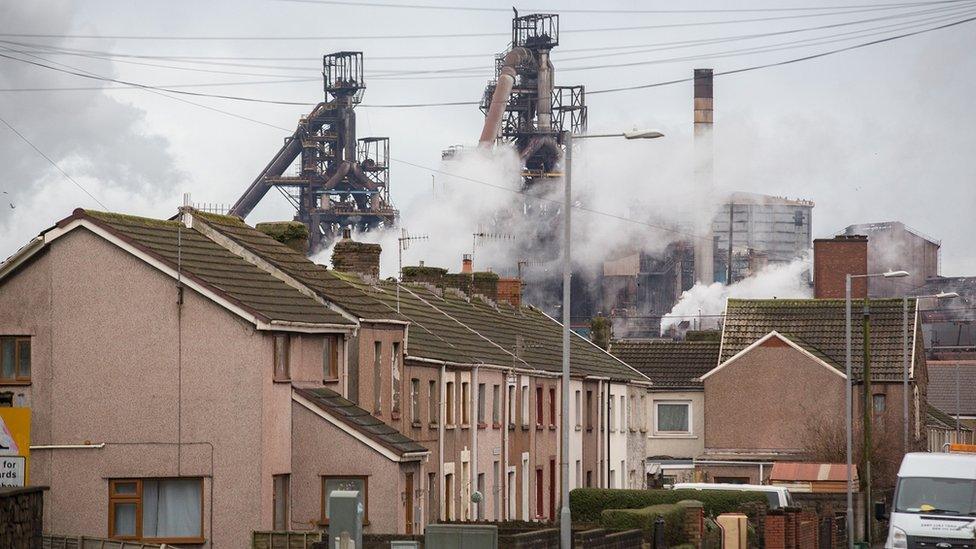Tata Steel bailout shows the UK must act to compete
- Published

Port Talbot in Wales is home to the UK's biggest steelmaking plant
For the government and the UK steel sector the £500m support package for Port Talbot's steelworks is an important intervention that secures an industry whose future, finances and emissions are unsustainable.
And, as government officials point out, it is much less than the £1.5bn Tata originally said was needed to save Port Talbot from possible closure.
For the Labour Party, it's another example of a hotchpotch, patchwork of last-minute deals that are a poor substitute for a coherent industrial strategy. The worst possible combination of spending hundreds of millions while costing thousands of jobs.
For the workers and unions, it's a terrible outcome of a process that they have not been involved with or consulted upon, with a result that will leave the UK still reliant on imports of the kinds of steel these new proposed furnaces cannot supply.
Whichever view you take, it's the latest in a string of government interventions in industry which has seen £700m-plus given to Tata-owned Jaguar Land Rover to build a new battery plant, £100m to Nissan to expand their existing one, £75m to BMW's Mini plant and a further £300m offer to Chinese-owned British Steel, among many others.
These are big grants to deep pocketed foreign investors who are masters at extracting subsidies for stuff they might well have done anyway.
But as the map of manufacturing is being redrawn it's the new normal. There is an international subsidy war going on and the US has more than £300bn on offer to companies that want to locate a new generation of greener industries.
The chancellor said last year he was not prepared to go "toe-to-toe" with the US and EU in the subsidy bidding war.
Recent experience suggests the government knows it's a fight they can't duck.
Related topics
- Published15 September 2023

